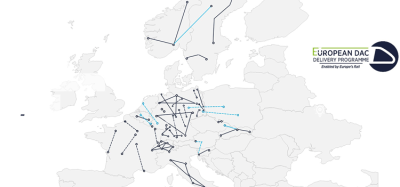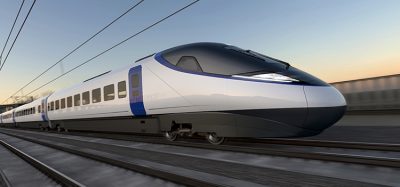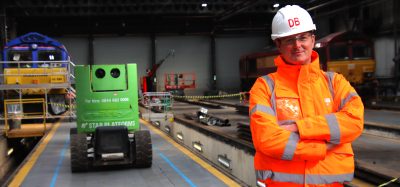FTA issues note of caution on HS2
Posted: 12 March 2010 | | No comments yet
Leading trade body the Freight Transport Association (FTA) has asked that the needs of freight are not forgotten in the buzz surrounding High Speed Rail 2 (HS2).
Leading trade body the Freight Transport Association (FTA) has asked that the needs of freight are not forgotten in the buzz surrounding High Speed Rail 2 (HS2).
Leading trade body the Freight Transport Association (FTA), which represents the users of rail freight in the UK, has asked that the needs of freight are not forgotten in the buzz surrounding High Speed Rail 2 (HS2). While FTA supports investment in transport infrastructure, the increasingly important role of rail freight in moving goods around the country must not be undermined by politically exciting passenger-focused schemes.
Christopher Snelling, FTA’s Head of Global Supply Chain Policy, said:
“HS2 is great news for passengers, but they are not the only users of rail. FTA is concerned that investment in a scheme as ambitious as HS2 could damage improvement in freight services by draining resources from other areas of rail spending, in particular the Strategic Freight Network (SFN). High-speed 2 is a passenger rail project, which will yield little direct benefit to freight. It is important therefore that funding for other rail priorities, such as the SFN, is protected. The needs of passengers and freight are not the same.”
The SFN will deliver real benefits to the UK’s supply chain and will play a key part in reducing the carbon footprint of our supply chain. FTA would like to see the next Government commitment to continue funding the SFN at current levels – which is only £250m over five years, compared to the £17bn cost of the initial HS2 project.
FTA also wants assurances that freight paths on the West Coast Main Line north of Birmingham – a section of track crucial to rail freight movements – are protected ahead of a potential increase in passenger use.
Snelling concluded:
“For the sake of the growing number of companies that rely on rail freight, guarantees need to be secured so that current levels of freight allocation are protected.”
OUT NOW: The Definitive Guide to Rail’s Digital Future
The rail industry is undergoing a digital revolution, and you need to be ready. We have released our latest market report, “Track Insight: Digitalisation.”
This is not just another report; it’s your comprehensive guide to understanding and leveraging the profound technological shifts reshaping our industry. We move beyond the buzzwords to show you the tangible realities of AI, IoT, and advanced data analytics in rail.
Discover how to:
- Optimise operations and maintenance with real-time insights.
- Enhance passenger services through seamless, high-speed connectivity.
- Leverage technologies like LEO satellites to improve safety and efficiency.
Featuring expert analysis from leaders at Nomad Digital, Lucchini RS, Bentley Systems and more, this is a must-read for any rail professional.







